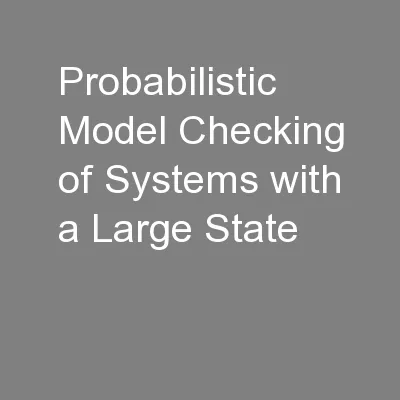PPT-Probabilistic Adaptive Real-Time Learning And Natural Conve
Author : giovanna-bartolotta | Published Date : 2016-06-13
Seventh Framework Programme FP7ICT20117 20112014 httpwwwparlanceprojecteu Partners University of Cambridge Coordinator Helen Hastie hhastiehwacuk All of these
Presentation Embed Code
Download Presentation
Download Presentation The PPT/PDF document "Probabilistic Adaptive Real-Time Learnin..." is the property of its rightful owner. Permission is granted to download and print the materials on this website for personal, non-commercial use only, and to display it on your personal computer provided you do not modify the materials and that you retain all copyright notices contained in the materials. By downloading content from our website, you accept the terms of this agreement.
Probabilistic Adaptive Real-Time Learning And Natural Conve: Transcript
Download Rules Of Document
"Probabilistic Adaptive Real-Time Learning And Natural Conve"The content belongs to its owner. You may download and print it for personal use, without modification, and keep all copyright notices. By downloading, you agree to these terms.
Related Documents














